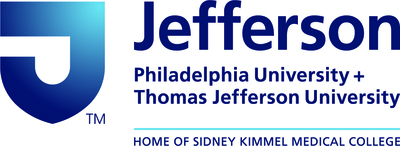Source: businessinsider.com

PHILADELPHIA, July 5, 2018 /PRNewswire/ -- With 30 states now allowing the use of medical marijuana, the multi-billion dollar legal cannabis industry is projected to be one of the fastest-growing sectors of the U.S. economy in the next decade.
Until now, healthcare providers, researchers and industry professionals have found few credible, evidence-based educational options to learn about the health benefits and risks of cannabis in appropriate clinical settings to treat chronic pain and other conditions such as multiple sclerosis spasticity or epileptic seizures.
To address this need, The Lambert Center for the Study of Medicinal Cannabis and Hemp at Thomas Jefferson University has created the nation's first—and only—university-based, graduate-level certificates in cannabis education for healthcare and industry professionals.
"With the ever-evolving legislative and regulatory environment, accumulating data and diverse political commentary on the topic of medical marijuana, there exists a vast knowledge gap," said Charles Pollack, MD, director of the Jefferson Institute of Emerging Health Professions and The Lambert Center. "Our goal at The Lambert Center is to help expand the knowledge base of scientists and clinicians—physicians of every specialty, nurses, nurse practitioners, physician assistants and pharmacists—and these new programs will help advance the knowledge and treatment around medicinal cannabis."
This fall, the Lambert Center will launch graduate certificates in Cannabis Medicine and Cannabinoid Pharmacology, both the first of their kind. In 2019, the Cannabinoid Chemistry and Toxicology Graduate Certificate will be launched.
Prescriptions for cannabis have not been written since 1937, when medical marijuana was made illegal. That means most practicing medical professionals have learned only about the drug's abuse potential and little about its clinical applications. It was only in the 1980s that scientists began to clarify the body's endocannabinoid system, which provides our current understanding of how cannabinoids may work in the treatment of various diseases.
Still, many medical professionals today are hard-pressed to answer patient questions about the efficacy of cannabis products and the associated pros and cons, and Jefferson's new programs promise to fill the gap.
The Cannabis Medicine Certificate will target clinicians who want a higher level of knowledge about safe and appropriate medicinal cannabis to incorporate into their practices. Pharmacological and pathologic concepts and current treatments of diseases for which cannabinoid compounds have been demonstrated to be therapeutic will be covered and supplemented with peer-reviewed research data on cannabis therapy as an adjunct or replacement for conventional therapy. The program will also include a comprehensive review of the social, political and cultural landscape in which the current debates occur.
The Cannabinoid Pharmacology Certificate, targeting scientists and researchers, will explore the ways cannabis affects the human body as well as how the body metabolizes and excretes cannabis and cannabinoids.
The Cannabinoid Chemistry and Toxicology Certificate will give those working in regulation of the legal cannabis industry, as well as scientists, an understanding of cannabis botany and propagation, products and biological samples and principles of quality control for cannabis containing products.
All three certificate programs are offered in partnership with the Center for Forensic Science Research & Education (CFSRE) at the Fredric Rieders Family Foundation, which has been at the forefront of the forensic community, providing novel developments in research, training and education in the forensic sciences for more than 20 years.
Each year-long certificate program offers four three-credit academic courses focused on evidence-based medicine. Ten of the twelve graduate courses will be offered entirely online. The Cannabinoid Chemistry and Toxicology Certificate requires two hybrid courses that include both in-person didactics and laboratory exercises at CSFRE's state-of-the-art research and teaching facility in Willow Grove, Pa.
The cannabis certificates are part of several new certificate programs from Jefferson's Institute of Emerging Health Professions, which endeavors to provide innovative and unique education and training to fill future career, training and certification gaps in healthcare practice and delivery.
Jefferson's Lambert Center for the Study of Medicinal Cannabis & Hemp is the nation's only comprehensive academic resource for education, research and practice pertaining to the potential use of cannabinoids as medical therapy.
For more information about the certificate programs, click here.
Jefferson (Philadelphia University + Thomas Jefferson University) is a leader in transdisciplinary professional education and home of the Sidney Kimmel Medical College and the Kanbar College of Design, Engineering and Commerce. Based in Philadelphia, Jefferson is a national professional university delivering high-impact education in 160 undergraduate and graduate programs to 7,800 students in architecture, business, design, engineering, fashion, health, medicine, science and textiles. The new Jefferson is redefining the higher education value proposition with an approach that is collaborative and active; increasingly global; integrated with industry; focused on research across disciplines to foster innovation and discovery; and technology-enhanced. Student-athletes compete as the Jefferson Rams in the NCAA Division II Central Atlantic Collegiate Conference.
The Lambert Center for the Study of Medicinal Cannabis and Hemp at Jefferson is a comprehensive academic resource for education, research, and practice in the use of cannabinoids as medicinal therapy. Founded in May 2016 as the Center for Medical Cannabis Education & Research, the Center was renamed in December 2016 in recognition of a generous gift from Australian philanthropists Barry and Joy Lambert.
No comments:
Post a Comment